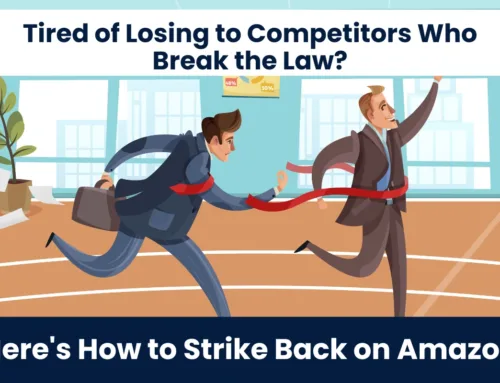Prop 65 is a California law that protects public health and the environment by requiring businesses to provide warnings when certain chemicals are present in their products. As an Amazon Seller, it’s essential to know this law as it may affect the products you sell in California. The law requires businesses to provide a “clear and reasonable” warning when a consumer may be exposed to certain chemicals. You may have seen the warning on products you buy. It has a yellow triangle with the word warning and is often found on packages or websites. If you think Prop 65 applies to a product you sell, you should consult with legal counsel to ensure that your warnings comply.
What is Prop 65?
The Safe Drinking Water and Toxic Enforcement Act of 1986, also known as prop 65, is a law in California that requires businesses to warn consumers when they may have significant exposure to chemicals that may cause cancer, birth defects, or other reproductive harm. The most up-to-date list of chemicals is available on the California Office of Environmental Health Hazard Assessment website. This law impacts products and locations like buildings, parks, and workplaces. It prohibits California businesses from knowingly releasing the listed chemicals into drinking water sources.
California has the fifth-largest economy in the world. It’s also the largest state economy in the US, so it’s not uncommon for policies in California to become standard for e-commerce in the entire United States. Amazon Sellers usually take this approach, as Amazon does not have the option to sell to or exclude specific states.
How does Prop 65 impact product sellers?
Under Prop 65, products sold in California must provide a “clear and reasonable” warning if they contain any of the chemicals listed. The warning must be specific to the chemical(s) in the product and can be provided in one of a few methods. These methods include labels on the products, signs in the store, and notices on the product website.
Some companies choose to remove the chemical from their products or reformulate the products to lower the level of the chemical to avoid having to provide a warning. This leads to increased costs for businesses to sell in California, which are sometimes passed on to the consumers in the form of higher prices. Other companies choose not to do business in California at all.
Exemptions
There are certain exemptions from the warning requirement under Prop 65. Exemptions and exclusions apply to specific types of businesses or products. These are some examples:
- Businesses with fewer than ten employees are generally exempt (except that when you sell on Amazon and you are required to hold Amazon harmless, having less than ten employees makes no difference and you can still be held accountable).
- Non-significant exposures, or exposures that are determined to be so low that they pose minimal risk of cancer or reproductive harm. However, be aware that this is often debatable, especially when relying on tests provided by your manufacturer, which is why we always recommend independent testing from your inventory stock.
- Naturally occurring chemicals, such as those found in fruits, vegetables, or seafood. But naturally occurring chemicals that are a result of pollution are not naturally occurring.
- Certain types of products, like prescription drugs and over-the-counter drugs, are exempt.
These examples are not an exhaustive list. If you have specific questions about your business and Prop 65, schedule a consultation with one of our attorneys.
Amazon and Prop 65
Amazon sellers do not have the option to cease operations in California (in most cases) so they must choose to reformulate or add warnings to products. Before August 2022, most sellers on Amazon were exempt from Prop 65 because they had fewer than ten employees. Lee v Amazon in 2022, introduced new court rulings that led to Amazon changing its policy for seller liability for Prop 65. Before Lee v Amazon, Amazon was held to a lower level of scrutiny as a retailer under the law. However, this ruling stated that Amazon is responsible for providing warnings based on knowledge that it may obtain from other sources and is liable to be sued when they fail to do so.
After this ruling, Amazon changed its seller policies to include Prop 65 warnings. The policy now states that sellers must indemnify Amazon and hold them harmless in Prop 65 cases. This means that if Amazon receives a Prop 65 violation notice, the seller is liable, regardless of if they would be exempt when operating on their own, at least according to Amazon. And, to make sure you do your best to resolve the matter, Amazon is now actively freezing disbursements when Sellers are involved in a Prop 65 matter immediately, until the case is settled. What’s worse is that under this regime, even small resellers on a listing can get roped in. We have seen people who listed one unit of a product for sale on a listing get caught in a situation where they had to spend over $10,000 to settle it.
If you received a Prop 65 notice, our attorneys are available for legal counsel.


